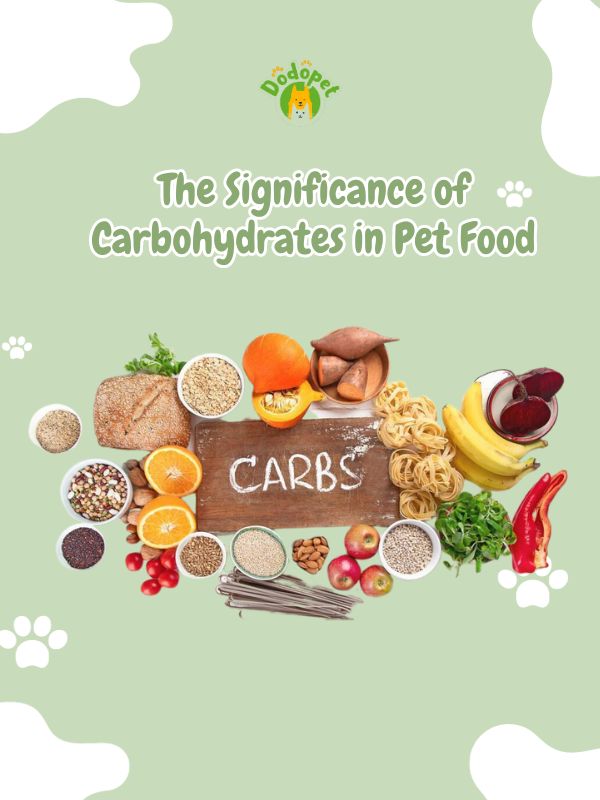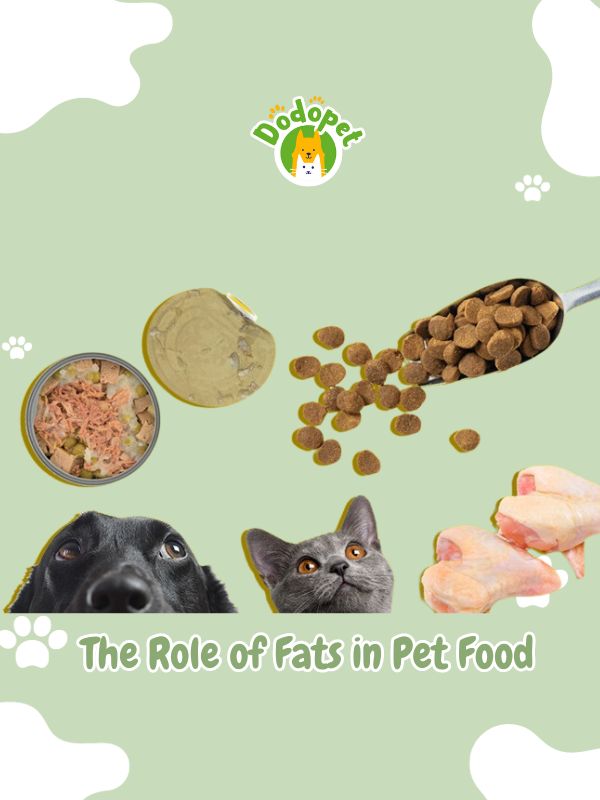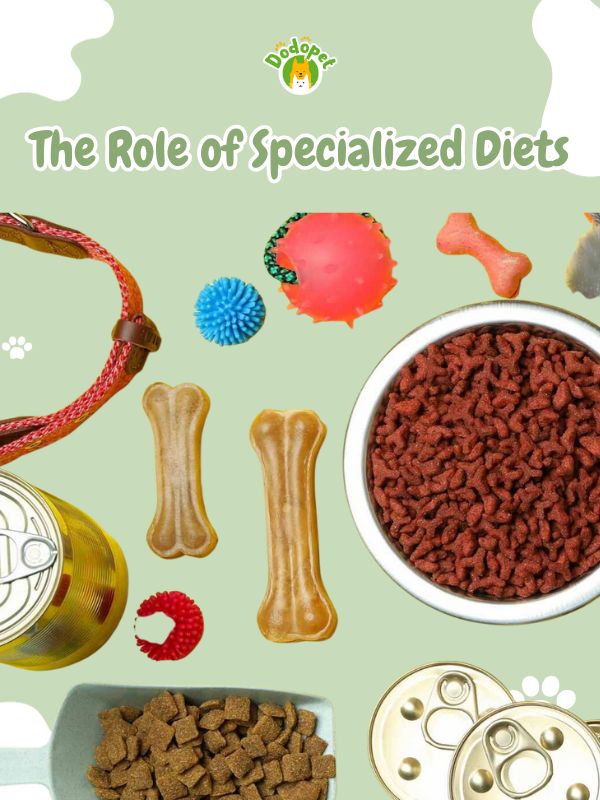Pet health is a topic of utmost importance for pet owners. Ensuring that our furry friends are happy and healthy is a top priority. One key aspect of pet health is their diet, and pet food experts have invaluable insights to share. In this article, we will delve into the secrets revealed by these experts, providing you with the knowledge to harness your pet’s health to the fullest.
The Importance of a Balanced Diet
A balanced diet is crucial for maintaining optimal pet health. Pet food experts emphasize the significance of providing pets with a well-rounded and nutritious diet. This means ensuring that their meals contain the right balance of proteins, carbohydrates, fats, vitamins, and minerals.
A balanced diet provides pets with the necessary nutrients to support their overall health and well-being. It helps maintain a healthy weight, promotes strong bones and muscles, boosts the immune system, and enhances their coat and skin condition. By feeding your pet a balanced diet, you can help prevent various health issues such as obesity, diabetes, allergies, and digestive problems.
Here are five key benefits of a balanced diet for pets:
- Improved energy levels
- Enhanced immune system
- Healthy weight management
- Stronger bones and teeth
- Glossy coat and healthy skin

Harness Pet Health_ Secrets from Pet Food Experts Unveiled!
The Role of Protein in Pet Food
Protein is an essential component of a pet’s diet. Pet food experts stress the importance of high-quality protein sources in pet food. These proteins provide the building blocks for healthy muscles, tissues, and organs. Here’s an overview of the role of protein in pet food:
- Source of Essential Amino Acids: Proteins are made up of amino acids, and some of these amino acids are considered essential, meaning that the pet’s body cannot produce them on its own. High-quality protein sources in pet food provide these essential amino acids necessary for growth, tissue repair, and overall health.
- Muscle Development and Maintenance: Protein is essential for building and maintaining muscle mass. It’s particularly important for active and growing pets, as well as for seniors to help prevent muscle loss.
- Enzyme Function: Enzymes are proteins that play a crucial role in various metabolic processes. They help in breaking down food, absorbing nutrients, and supporting overall digestion.
- Immune System Support: Some proteins in pet food, such as immunoglobulins found in colostrum, can help support the immune system. High-quality protein sources can aid in maintaining strong immunity.
- Skin and Coat Health: Proteins contribute to skin and coat health. Essential fatty acids found in some protein sources are necessary for maintaining a healthy skin barrier and a shiny coat.
- Energy Source: While carbohydrates are the primary energy source in pet food, proteins can be metabolized for energy when needed. This is especially important in situations of increased energy expenditure.
- Cell Repair and Growth: Protein is essential for cell repair and growth in various parts of the body, including hair, skin, nails, and internal organs.
- Brain Function: Proteins contain amino acids that are important for brain function and cognitive health in pets. This is particularly crucial for senior pets.
By incorporating protein-rich foods into your pet’s diet, you can help them maintain optimal health and vitality.
The Significance of Carbohydrates in Pet Food
Carbohydrates are another essential component of a balanced pet diet. Pet food experts emphasize the importance of choosing high-quality carbohydrates that provide sustained energy and promote digestive health.
Carbohydrates serve as an energy source for pets, providing them with the fuel they need to stay active and healthy. Additionally, carbohydrates aid in digestion and promote a healthy gut flora.
- Energy Source: Carbohydrates are a valuable source of energy in pet food. While dogs and cats are primarily meat-eaters, carbohydrates provide a readily available and easily digestible source of energy. This is especially important for active and working dogs.
- Fiber for Digestive Health: Carbohydrates, particularly dietary fiber, help support healthy digestion in pets. Fiber aids in maintaining regular bowel movements, preventing constipation, and supporting colon health.
- Controlled Blood Sugar Levels: The right balance of carbohydrates can help regulate blood sugar levels in pets. This is particularly important for animals with diabetes or those at risk of developing the condition.
- Weight Management: Some carbohydrate sources, like whole grains, can help pets feel full and satisfied, contributing to weight management by reducing excessive eating.
- Texture and Palatability: Carbohydrates can add texture and palatability to pet food, making it more appealing to animals. They help form kibble or maintain consistency in wet foods.
- Binding Ingredients: Carbohydrates are often used as binding agents in the manufacturing of pet food. They help hold the kibble or treat together and maintain its shape.
- Flavor and Taste: Certain carbohydrates, like sweet potatoes or peas, can contribute to the flavor profile of pet food and enhance the overall taste, making it more appealing to pets.
Five examples of beneficial carbohydrates for pets:
- Whole grains
- Fruits and vegetables
- Legumes
- Sweet potatoes
- Pumpkin

The Significance of Carbohydrates in Pet Food
The Role of Fats in Pet Food
Fats are an essential part of a pet’s diet, providing them with concentrated energy and aiding in the absorption of fat-soluble vitamins. Pet food experts highlight the importance of including healthy fats in pet food formulations.
Fats offer several benefits for pets, including:
- Energy Source: Fats are an efficient source of energy for pets. They provide a concentrated source of calories, which is important for active dogs and cats, as well as working or sporting animals.
- Essential Fatty Acids: Fats contain essential fatty acids, such as omega-3 and omega-6 fatty acids, which are vital for overall health. These fatty acids support the immune system, skin and coat health, and can have anti-inflammatory properties.
- Skin and Coat Health: Proper fat intake is crucial for maintaining healthy skin and a shiny coat. Fats help reduce dryness, flakiness, and itching, and they improve the overall appearance of the pet’s coat.
- Nutrient Absorption: Some vitamins and nutrients, including fat-soluble vitamins (A, D, E, and K), are better absorbed in the presence of dietary fat. Fats facilitate the absorption of these essential nutrients.
- Cell Membrane Integrity: Fats are integral to the structure of cell membranes. They help maintain the integrity and function of cells throughout the body.
- Brain and Nervous System Function: The brain and nervous system rely on fats for proper function. Essential fatty acids support cognitive health and may have a positive impact on learning and memory in pets.
- Joint Health: Fats are often included in pet food formulas to support joint health. Omega-3 fatty acids, in particular, have anti-inflammatory properties and may help manage arthritis or other joint conditions.
- Maintaining Healthy Body Temperature: Fats help insulate the body and maintain core temperature, especially in colder weather or for pets living in cold climates.
By incorporating healthy fats into your pet’s diet, you can help support their overall health and well-being.

The Role of Fats in Pet Food
The Importance of Vitamins and Minerals
Vitamins and minerals are essential for maintaining optimal pet health. Pet food experts stress the importance of including a wide range of vitamins and minerals in pet food formulations to ensure pets receive all the necessary nutrients.
Here are five essential vitamins and minerals for pets:
- Vitamin A: Vitamin A is crucial for maintaining healthy vision, skin, and the proper functioning of the immune system. It is essential for pets’ growth and development.
- Vitamin D: Vitamin D is necessary for the absorption of calcium and phosphorus, which are essential for strong bones and teeth. It also supports the immune system and helps regulate blood calcium levels.
- Vitamin E: Vitamin E is an antioxidant that helps protect cells from damage caused by free radicals. It is important for skin health and can support the immune system.
- Calcium: Calcium is essential for the development and maintenance of strong bones and teeth. It also plays a role in muscle function, blood clotting, and nerve transmission.
- Iron: Iron is vital for the formation of hemoglobin, which carries oxygen in the blood. It supports energy metabolism and overall vitality.
By ensuring that your pet’s diet contains a variety of vitamins and minerals, you can help them thrive and maintain optimal health.

The Importance of Vitamins and Minerals
The Role of Specialized Diets
Specialized diets, also known as therapeutic or prescription diets, are formulated to address specific health conditions or dietary needs in pets. These diets play a crucial role in managing, preventing, or even alleviating certain health issues. Here’s an overview of the role of specialized diets for pets:
- Management of Health Conditions: Specialized diets are designed to manage a wide range of health conditions, including obesity, diabetes, kidney disease, urinary tract issues, food allergies, gastrointestinal problems, and more. These diets are formulated to provide the right balance of nutrients to help manage and support the specific condition.
- Weight Management: Weight management diets are tailored to help pets lose or maintain a healthy weight. They typically have reduced calorie content, higher fiber levels, and appropriate protein levels to support satiety and muscle maintenance while promoting weight loss.
- Digestive Health: Some pets suffer from digestive issues, such as chronic diarrhea or irritable bowel syndrome. Specialized diets with easily digestible ingredients, fiber levels, and specific nutrients can help manage these conditions.
- Food Allergies and Sensitivities: Pets with food allergies or sensitivities may require diets with novel protein sources or hydrolyzed proteins. These diets can reduce the risk of allergic reactions and ease gastrointestinal discomfort.
- Renal (Kidney) Health: Renal diets are formulated to support pets with kidney disease. They often have restricted protein, phosphorus, and sodium levels to reduce the strain on the kidneys.
- Urinary Health: Urinary diets are created to manage urinary tract issues, such as bladder stones or urinary crystals. They help regulate urinary pH and may contain ingredients that promote urinary health.
- Dental Health: Dental diets often have a unique texture and shape that can help reduce plaque and tartar buildup on the teeth. They promote oral health and fresh breath.
- And more other types of specialized diets
Here are five examples of specialized diets for pets:
- Weight management diets
- Senior pet diets
- Grain-free diets
- Hypoallergenic diets
- Prescription diets for specific health conditions
By following a specialized diet tailored to your pet’s unique needs, you can help manage their health conditions and promote overall well-being.

The Role of Specialized Diets
The Importance of Hydration
Proper hydration is crucial for pet health. Pet food experts emphasize the significance of providing fresh and clean water at all times to ensure that pets remain adequately hydrated.
Hydration plays a vital role in numerous bodily functions, supporting overall health and well-being. Proper hydration is essential for maintaining physiological balance and ensuring that various processes in the body function optimally. Here are some of the key bodily functions in which hydration plays a critical role:
- Temperature Regulation: Hydration helps regulate body temperature by enabling the body to sweat and dissipate heat, which is especially important in hot or humid conditions.
- Circulation: Proper hydration ensures that blood is at an appropriate viscosity, allowing it to flow smoothly through the blood vessels. Dehydration can lead to thickened blood and reduced circulation.
- Nutrient Transport: Blood, which is primarily composed of water, transports essential nutrients and oxygen to cells throughout the body. Adequate hydration supports the delivery of nutrients to tissues.
- Detoxification: Hydration is essential for the proper functioning of the kidneys and liver, which play a key role in filtering and eliminating waste products and toxins from the body.
- Digestion: Hydration supports the production of saliva and the proper function of digestive enzymes, helping to break down food and promote efficient digestion.
- Electrolyte Balance: Adequate hydration maintains the balance of electrolytes like sodium and potassium, which are essential for muscle and nerve function.
Here are five tips to ensure your pet stays hydrated:
- Provide fresh water in clean bowls
- Monitor water intake
- Consider using a pet fountain
- Offer wet food or add water to dry food
- Consult with a veterinarian if concerned about hydration levels

The Importance of Hydration
Conclusion
By harnessing the knowledge shared by pet food experts, you can ensure that your pet enjoys optimal health and well-being. Remember to provide a balanced diet, including high-quality proteins, carbohydrates, fats, vitamins, and minerals. Consider specialized diets if necessary and follow feeding guidelines provided by pet food manufacturers. Keep your pet hydrated and schedule regular veterinary check-ups to maintain their overall health. With these secrets unveiled, you can become a pet health expert yourself and provide the best care for your furry companion.



